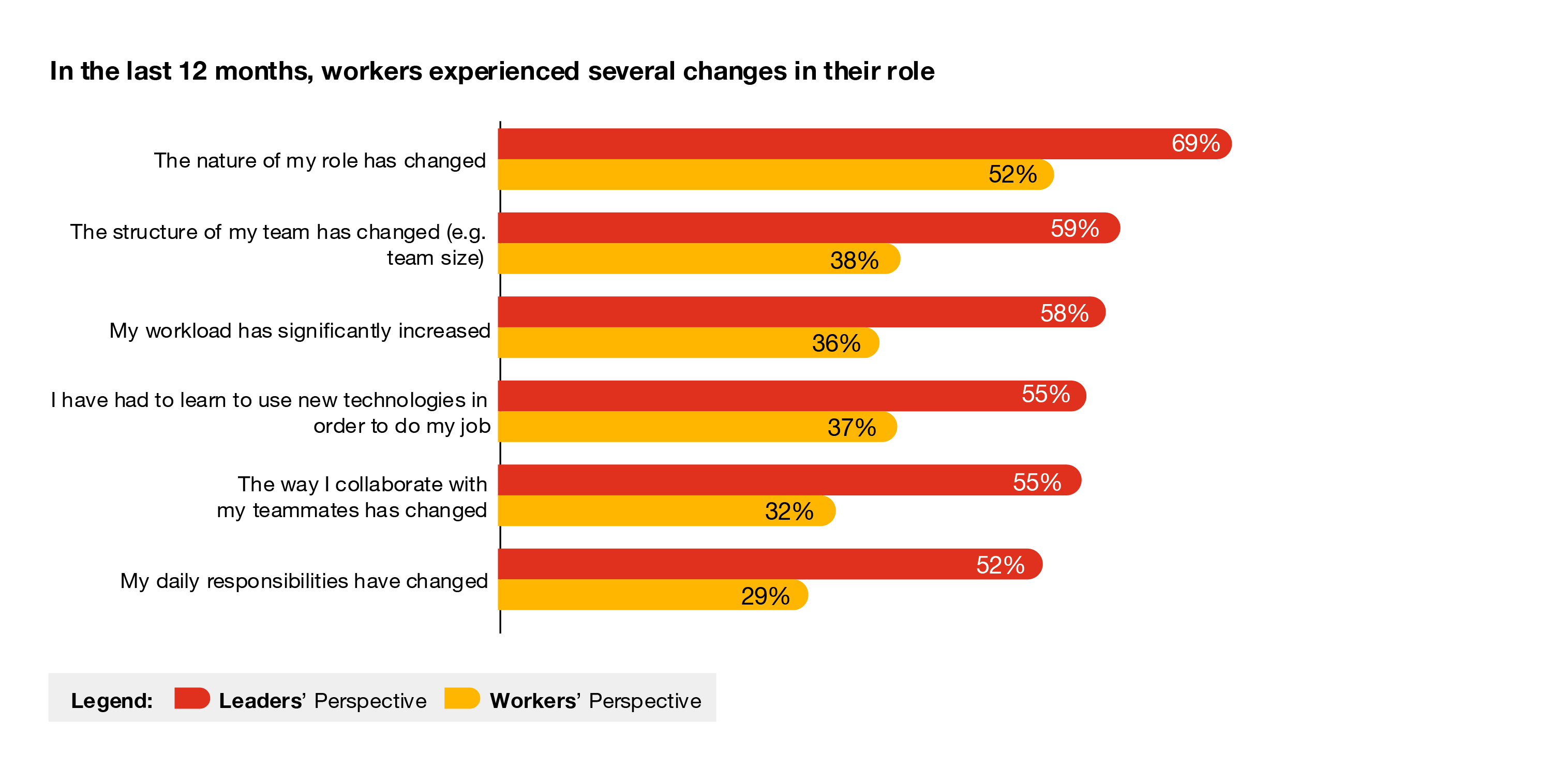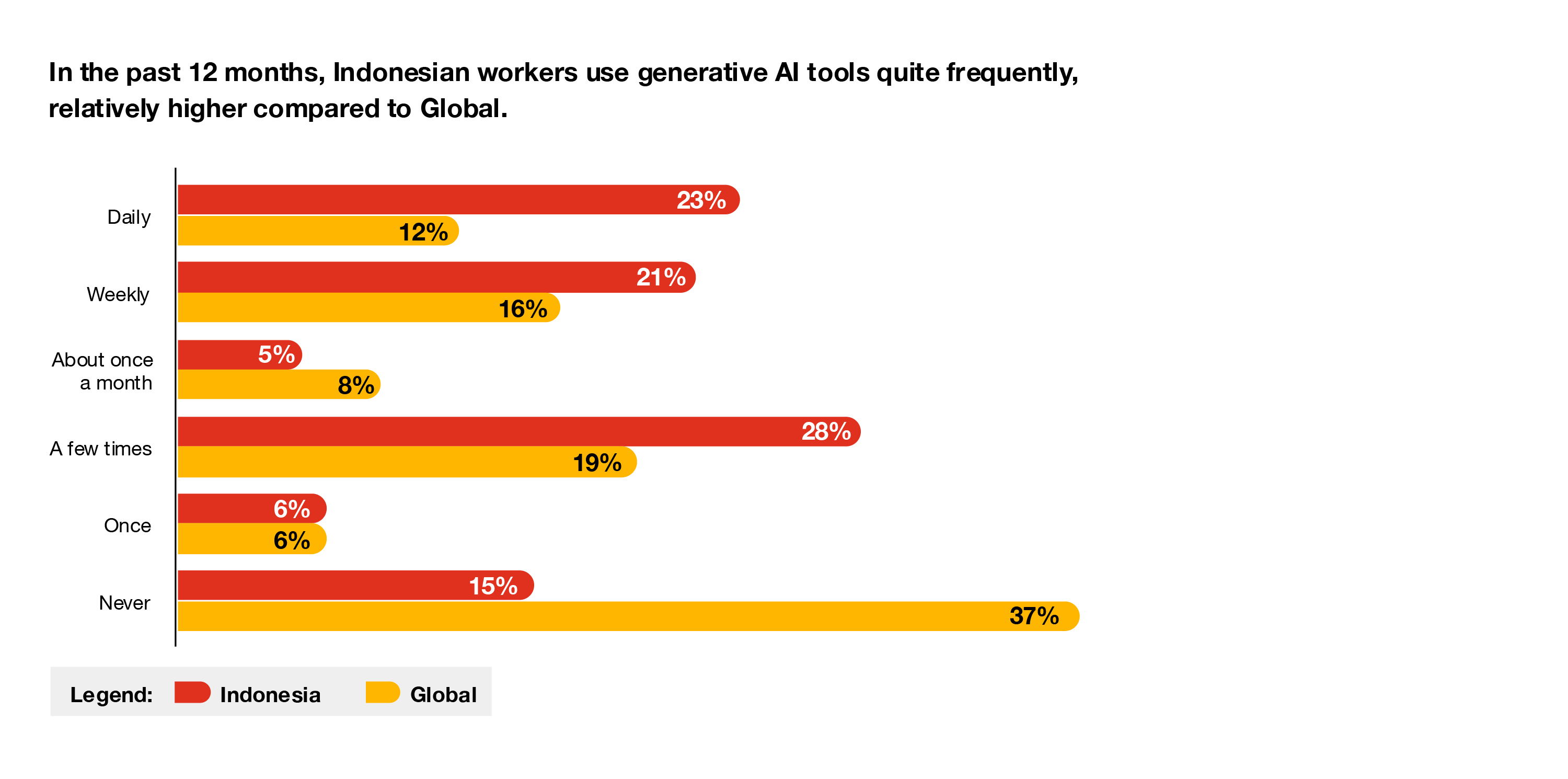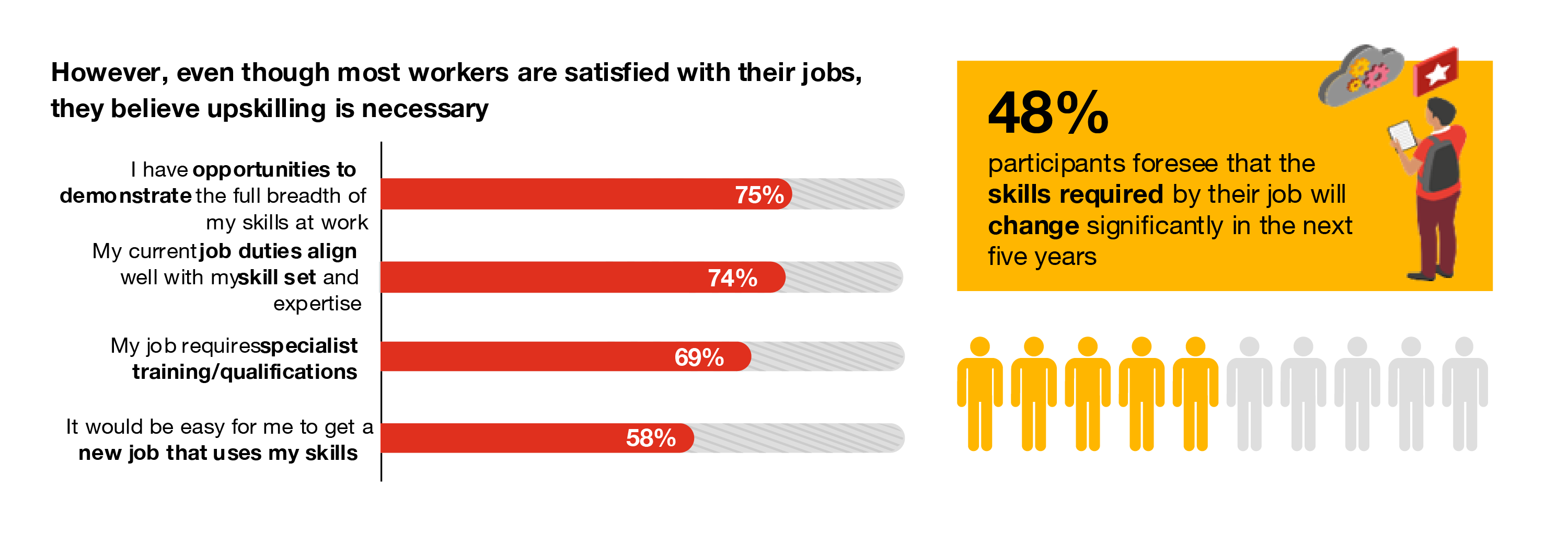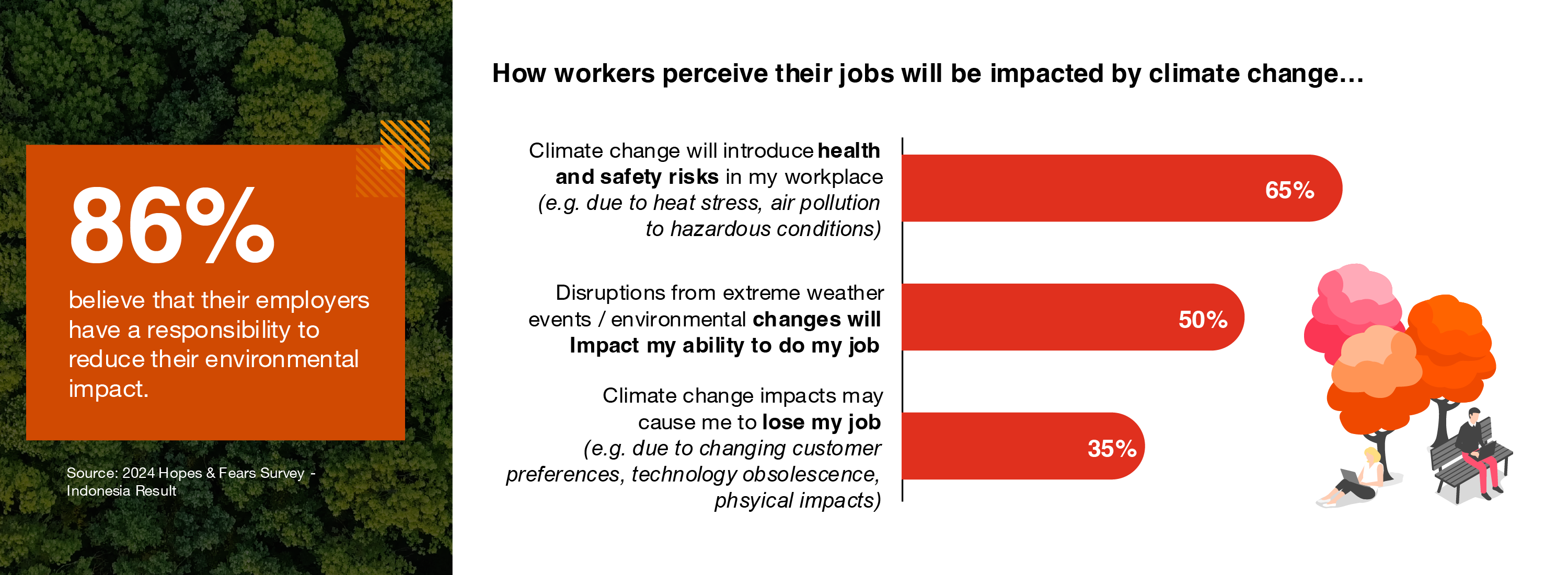Our Global Hopes & Fears 2024 survey, with over 56,600 respondents from 50 countries, explores four key themes:
In the Indonesia-specific edition, we gathered insights from over 1,000 local respondents, making it one of our most comprehensive regional surveys. These insights support workforce planning, strategy, and people development to unlock an organisation’s most powerful asset – its workforce.
The workforce is feeling stressed from constant changes – and leaders are no exception
In today's fast-paced business landscape, organisations face significant changes from new technologies, evolving job roles, and increasing responsibilities. Despite these challenges, there is a silver lining. Indonesian workers show remarkable optimism amid ongoing changes. 91% of Indonesian respondents have reacted positively to the changes, indicating their readiness to adapt to new ways of working. While both workers and leaders navigate these changes, leaders experience higher stress levels as they manage their duties and guide their teams through constant change.

Over the past year, 76% experienced significant shifts in their roles, yet 90% were eager to adapt and seize growth opportunities. This positive outlook highlights a resilient and proactive workforce ready to embrace transformation for personal and professional development.

To navigate ongoing changes, leaders must adopt innovative approaches. This includes prioritising mental health, promoting work-life balance, and offering robust support systems to build workforce resilience, which in return will result in a more fulfilling work.
Engaging workers through active involvement and transparent communication fosters ownership and collaboration.
When workers understand the reasons for change and are inspired by the leader's vision, they feel more engaged and motivated, while transparent communication from leaders builds trust and credibility. Furthermore, it will help to reduce stress, empower employees, and make organisations more agile and prepared for future challenges.
Workers are familiar with GenAI and use it frequently – are Leaders ready?
Over the past year, over 20% of Indonesian workers have incorporated generative AI (GenAI) into their routines. Most agree it has significantly boosted productivity, with 76% believing it will further enhance work efficiencies. This view is supported by 57% of Indonesian CEOs who expect GenAI to improve employees’ time management, as stated in PwC’s 27th Annual CEO Survey. Additionally, over 60% believe GenAI can enhance job security and lead to higher salaries. This trend highlights a forward-thinking workforce eager to leverage technology for streamlined operations, underscoring the importance of digital transformation in the modern workplace.

Navigating GenAI requires leaders' involvement to guide ethical use of this technology. PwC’s 27th Annual CEO Survey highlights leaders' concerns that the rise of GenAI will exacerbate cybersecurity risks, emphasising the need for comprehensive employee education. A substantial 73% of Indonesian CEOs believe the prevalence of GenAI will escalate cyber threats. This awareness among top executives underscores the critical importance of fortifying cybersecurity measures and ensuring employees are well-versed in best practices to mitigate risks.Understanding the full spectrum of benefits and risks allows leaders to harness its potential and guide their teams effectively.

To proactively address these concerns, organisations should establish infrastructure for safe and ethical usage, emphasising personal integrity while safeguarding against potential risks such as cybersecurity threats by:
- Leveraging optimism on GenAI: Provide clear guidance for safe and effective use of GenAI.
- Balancing tech with a human touch: Emphasise ethical practices and human oversight in GenAI deployment.
- Safeguarding against risk: Establish a governance framework to oversee GenAI usage.
Indonesian workers generally feel quite satisfied with their jobs; however, if opportunities to learn new skills arise elsewhere, they are likely to consider moving
Despite the pace of change, there are also signs of optimism and engagement at work. A total of 84% of Indonesian workers reported being satisfied with their current roles, driven by two key factors:
- Fair Rewards: 86% of respondents highlighted fair compensation as crucial, emphasising the importance of equitable pay structures.
- Fulfilling Jobs: 82% indicated that meaningful job roles are essential, pointing to the need for opportunities for personal growth and professional development.
Focusing on these areas can enhance employee satisfaction and retention, creating a more productive and positive work environment. Ensuring fair rewards and fulfilling roles are foundational to maintaining a motivated workforce.

Despite workers feeling their current skills align with their jobs, nearly half (48%) believe job requirements will change significantly in the next five years.
Upskilling opportunities are therefore crucial, as 57% of Indonesian workers see learning new skills within the organisation as a reason to stay. Investing in continuous learning and development will eventually better equip workers to adapt, sustaining their engagement and long-term satisfaction.
Organisations should provide guidance on the required skills and pathways to upskill, helping workers understand the relevance and impact of their learning.
Workers place sustainability as part of employers’ responsibility as it will expose them to various risks
Climate change is not just an environmental crisis; it directly impacts the global workforce. An overwhelming 86% of employees believe that their employers have a crucial responsibility to minimise their environmental footprint. This consensus underscores the urgent need for organisations to address environmental challenges and consider their profound implications on their workforce.
Leaders should foster transparent communication about their sustainability initiatives and goals to build trust, keep employees informed, and make them feel secure and involved. This approach enhances employee support and loyalty. Commitment to sustainability and transparency can be a compelling value proposition for attracting and retaining talent.

Indonesian Key Findings: Global Hopes and Fears 2024 Survey
Read PwC's Asia Pacific Workforce Hopes and Fears Survey 2024
Contact us


















